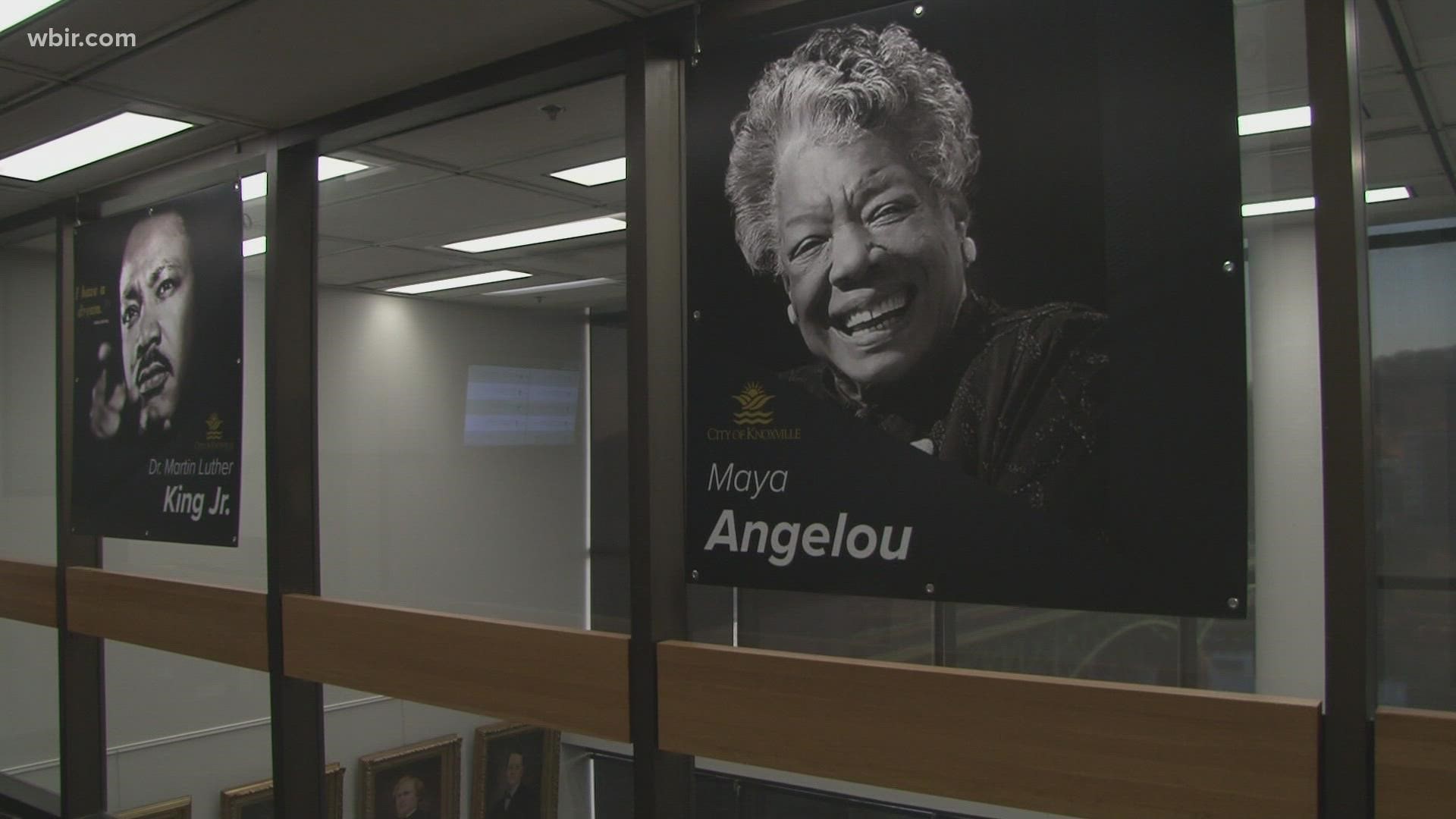KNOXVILLE, Tenn. — The City County Building in downtown Knoxville is often bustling with people running from room to room, decorated with fine art and displays. Throughout February, hallways will be decorated with pictures of Black leaders who inspired millions.
As people walk past windows they will see Dr. Martin Luther King, Maya Angelou, Malcolm X, Shirley Chisolm, Amanda Gorman, and former President Barack Obama. The pictures were originally going to be used in the Martin Luther King Jr. Day parade before it was canceled due to the weather.
Charles Lomax Jr., the Director of Community Empowerment in Knoxville, said that he knew they could be used again.
"We wanted to make sure that we still had a way of displaying the work that had been done," he said.
The display is open to the public near the Mayor's Office.
At the Beck Cultural Exchange Center in downtown Knoxville, leaders are recognizing Black leaders and communities who shaped the city's unique history. All month long, they will pull a piece of history from their 50,000 artifacts and showcase it.
"It is important for Knoxville to understand the legacy of history here," said one official at the center.
On Tuesday, they showcased a 100-page book published in 1929 which contained biographies of some of the most influential Black men and women of Knoxville. They included business owners, physicians, attorneys, educators, socialites, and many others.
The Beck Center called it an incredible source for understanding Black history in Knoxville, a primary source that details the lives of Black leaders around a century ago. It also provided a long list of Black-owned businesses, giving historical addresses to places that were lost as a result of Urban Renewal policies.
The policies caused families to leave their homes, sell their businesses and start cycles of poverty that families in Knoxville continue to struggle with as a result of losing equity.
"It is impossible to understate the importance of this artifact," said the Beck Center. "Without it, we wouldn't have photos and full biographies of some of the most influential men and women to live in Knoxville."

